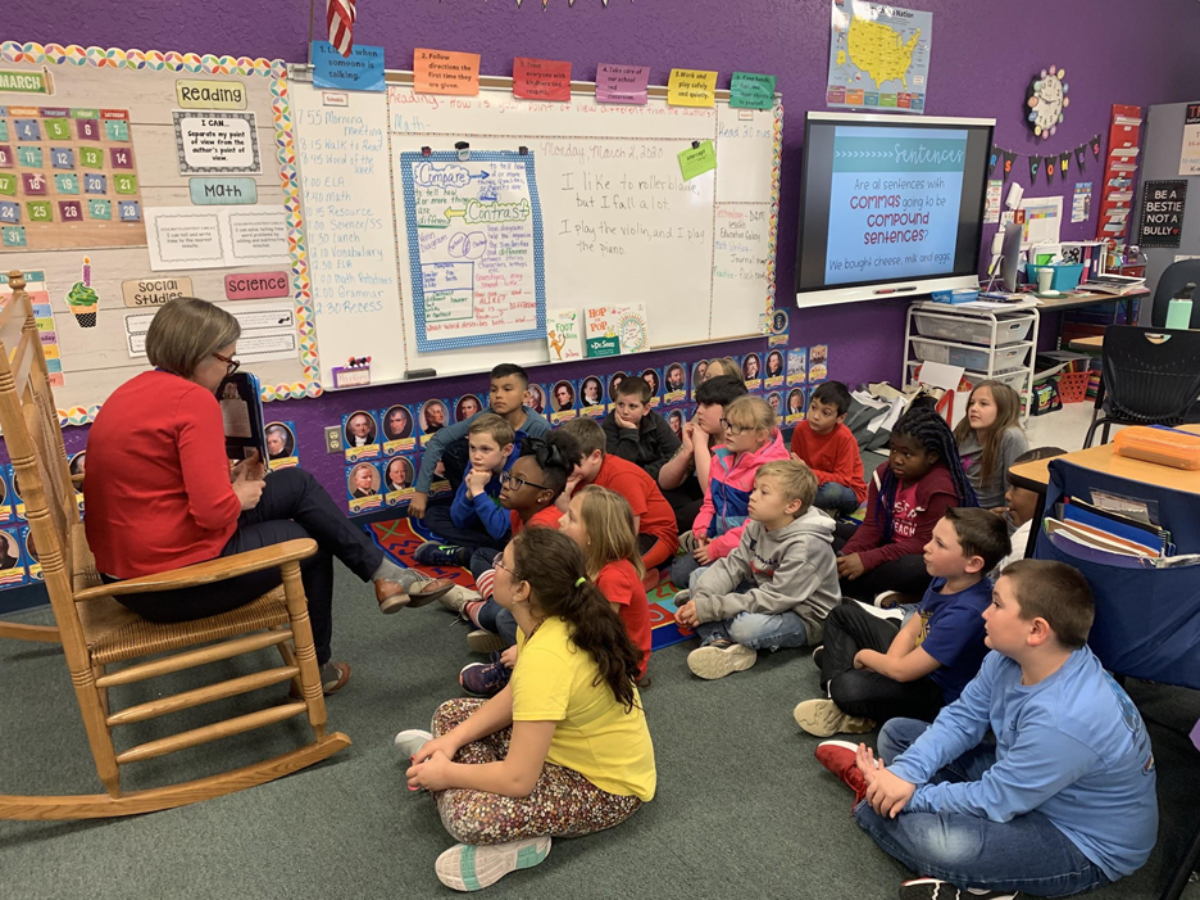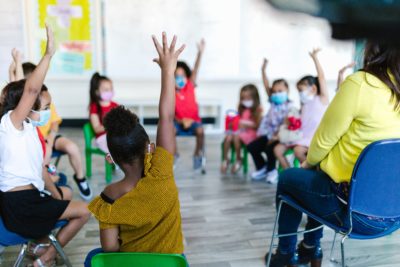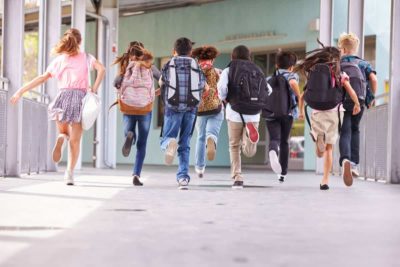

The North Carolina Resilience & Learning Project recently went through a rebranding and adopted the name the “North Carolina Center for Resilience & Learning.”
But what you should know about it goes beyond what it’s called. It’s housed in the Public School Forum of North Carolina and is teaching schools and districts how to better help students who have experienced trauma. And the benefits of this work, as it turns out, extend beyond just those particular students.
“Coming into the building and knowing that they have adults they can trust … is great for kids who’ve experienced trauma, but it’s something we want all kids to experience,” said Elizabeth DeKonty, director of the center.
According to a press release, staff has been able to reach more than 32 public school districts in some way.
The work focuses on two different aspects: training and coaching.
The center will work with school districts to identify specific schools to target and center staff come in. It often begins with a training that includes instructions on Adverse Childhood Experiences (ACEs), trauma, and trauma-informed practices.
According to Katie Rosanbalm, a research scientist at Duke University trained in child clinical and quantitative psychology, that training falls into two categories.
First is the kind of thing you’re probably familiar with: A PowerPoint that aids instruction on a topic; in this case, things like the human stress response system and the impact of adversity on brains and the ability to learn.
Rosanbalm — who works with the center — said that this can sometimes lead to reflection on the part of teachers and even new realizations.
“We really try to have those ah-ha moments, where we catch them in the hearts,” she said.
The second aspect of the training is to talk about strategies that can be implemented in schools. This involves teaching about skills related to social emotional well-being, self- regulation, and more.
But the part that tries to extend the change and make it part of school culture is the involvement of coaches that come in from the center.
“Where we really see change start to happen … is through the coaching with the resiliency teams,” DeKonty said.
Resiliency teams are groups of staff members from the school who are committed to helping implement the long-term changes related to trauma-informed practices. A coach meets regularly with the team and helps them with identifying what the school is doing well, where it needs work, and how to come up with and implement strategies.
Another way the center works with schools is through something called a leadership cohort. Rosanbalm, who leads some of this training, said this involves a group of principals, school social workers, or others, who want to immerse themselves in this kind of work and bring it back to schools to try it out. This involves training sessions throughout the year where the staff will learn and then go back and try to use what they learned in their schools.
“It’s kind of this learn, go practice, learn, go practice model,” Rosanbalm said.
Rachel Sullivan is a school counselor at B.T. Bullock Elementary School in Lee County.
Her school started working with the center during the 2019-20 school year before the COVID-19 pandemic hit. B.T. Bullock was one of two schools in the system working with the center, though that has now expanded to the rest of the district.
But the work had one kind of impact before the pandemic and a different one after, Sullivan said.
Pre-COVID, the work was focused intensely on students and their behavior. But that changed once the pandemic hit.
“In the middle of the pandemic, we were like ‘Whoa,’ because it was hard for everyone,” she said.
The focus began to shift to the need to build resilience among school staff. And that is an important aspect of this work.
“We want adults to come into their workplace and know that this is a safe and supportive environment for them, and then we want the same thing for students,” DeKonty said.
And when the adults are better able to function because they are caring for themselves, then they are better able to work with students to improve their coping skills.
“Kids don’t automatically know how to regulate, calm themselves down, communicate with other people,” Rosanbalm said. “Those are the kinds of skills we need to learn the same way we learn reading and math.”
She said the ability to self-regulate and manage emotions is more predictive of success in life for students than even academic success.
“We’ve got a lot of kids dealing with adversity and stress, and when they are in that state of fight, flight or freeze, they literally can’t learn anything until they settle,” she said.
Rosanbalm was actually one of the originators of the working group that ultimately became the center. This summer marks the fifth anniversary of the work the center is doing through the Public School Forum.
Rosanbalm was originally working with a group in Massachusetts — the Trauma and Learning Policy Initiative — that had started doing this work in the 2000s. She brought what she learned to North Carolina and started talking with other people about forming a work group to explore doing something similar. That study group — what was then called the Resilience & Learning Project — started the work that is continuing under the newly named center.
While the center does try to track its progress, COVID-19 affected its ability to get a good handle on the effectiveness of its work.
“I’m going to tell you right now that one of the biggest challenges … has been that COVID really happened right when we started to think we were going to see some evaluation outcomes,” Rosanbalm said.
The center does do surveys with third graders about their experience of school climate — one at the beginning of the year and one at the end. They do something similar with teachers and staff. But Rosanbalm said she was really hopeful before COVID that they could get a handle on more administrative data: things like office referrals, discipline, attendance, student achievement.
“While those aren’t directly what we’re working on with this project, what we hope is … those things are all going to improve,” she said.
While there might not be a lot of quantitative data for the center to use right now, Sullivan said that she has definitely seen the impact of the trauma-informed strategies in her school.
“There has been a drastic decrease in the amount of discipline referrals compared to prior,” she said, adding later: “They’re able to better understand their emotions and regulate them.”
But those kinds of results aren’t going to happen by themselves, and the center staff can’t make them happen. Rosanbalm and DeKonty both said that having buy-in from the administration of a school is key. And then, once that happens, the school staff have to work to make the necessary changes.
“This isn’t something we can do for you, this is something that has to come from within a school,” Rosanbalm said.




